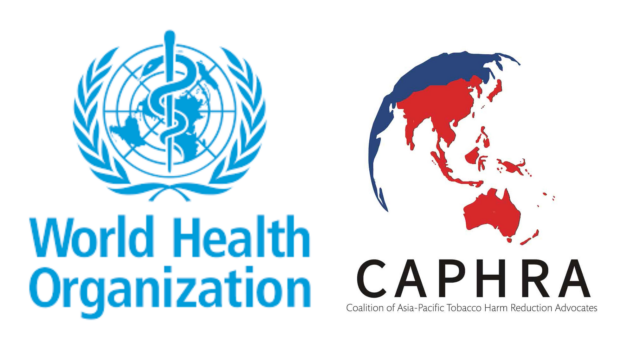A regional coalition advocating for tobacco harm reduction has called on the World Health Organization (WHO) to return to its founding mission, following mounting allegations of corruption, undue foreign influence, and the withdrawal of U.S. support.
“It’s time to hold the WHO to its mandate and core mission of protecting global health based on science, not ideology; that is inclusive of all stakeholders, without judgment or prejudice,” said Nancy Loucas, executive coordinator of the Coalition of Asia Pacific Tobacco Harm Reduction Advocates (CAPHRA).
Loucas pointed to what she described as “deeply concerning” developments, including accusations of corruption and poor governance in the Asia-Pacific region, along with claims that Bloomberg Philanthropies—funded by billionaire Michael Bloomberg—was exerting excessive influence over WHO-backed policy decisions.
CAPHRA cited reports indicating that Bloomberg Philanthropies, in collaboration with WHO, had improperly interfered with domestic policymaking in several countries, including the Philippines, India, Pakistan, Bangladesh, Indonesia, and Vietnam.
In the Philippines, CAPHRA referenced a 2021 congressional hearing that revealed the country’s Food and Drug Administration had accepted grants from foreign private organizations funded by Bloomberg Philanthropies to craft regulations covering cigarette alternatives.
Similar concerns emerged in Bangladesh during the November 2023 appointment of Saima Wazed as WHO’s regional director for South East Asia. Wazed, the daughter of former Prime Minister Sheikh Hasina, faced questions about potential undue influence from her mother. A Bangladeshi publication quoted the head of the Anti-Corruption Commission saying corruption was suspected in Wazed’s appointment.
In Pakistan, authorities suspended the operations of Tobacco-Free Kids and Vital Strategies, two non-governmental organizations backed by Bloomberg Philanthropies, citing regulatory violations. The country’s Interior Ministry also requested the freezing of their bank accounts by the State Bank of Pakistan.
In Indonesia, CAPHRA said the Ministry of Health came under scrutiny after reports that provisions from the Framework Convention on Tobacco Control (FCTC) were being inserted into a proposed plain packaging regulation for cigarettes—raising red flags over foreign involvement in national tobacco policy.
Hikmahanto Juwana, a professor of international law at the University of Indonesia, said Indonesia should protect its national sovereignty from foreign intervention and ensure government policies reflect domestic conditions.
In India, New Delhi halted the operations of a small non-profit funded by Bloomberg Philanthropies after it failed to disclose its source of funding, according to a Reuters report. An official noted that all other foreign-funded anti-tobacco organizations would now be required to obtain prior approval before continuing work in the capital.
Meanwhile, in Vietnam, the Consumer Choice Center raised similar concerns, claiming that Bloomberg’s “harmful interference” threatened smoking reduction efforts. A Facebook post showed WHO officials in Vietnam publicly thanking Bloomberg-supported groups for their technical assistance related to nicotine and smoking policy.
“The push from Bloomberg Philanthropies and the WHO represents a form of regulatory colonialism, where foreign entities dictate policies without considering the unique challenges of individual countries,” the Consumer Choice Center said.
CAPHRA said the timing of these issues is particularly troubling, as the WHO prepares for the 11th Conference of the Parties (COP11) to the FCTC, scheduled for November 17 to 22, 2025, in Geneva.
The group also noted that the United States’ withdrawal of support from the WHO—due to its handling of the COVID-19 pandemic and susceptibility to political influence—has encouraged other nations like Argentina, Hungary, Italy, and potentially Russia and the United Kingdom to reconsider their participation.
CAPHRA urged Asia-Pacific nations, including the Philippines, to stand firm in setting their own tobacco control policies, free from foreign interference.
“At this year’s COP, it is crucial that the Philippines assert its sovereignty against Bloomberg’s influence over the FCTC and advocate for its own policies. This ensures that smokers who do not quit will have access to less harmful alternatives,” CAPHRA said.
The organization continues to champion tobacco harm reduction (THR), promoting less harmful nicotine alternatives such as vapes, heated tobacco, and nicotine pouches. It points to scientific studies indicating that these options pose significantly lower health risks compared to traditional cigarettes.





